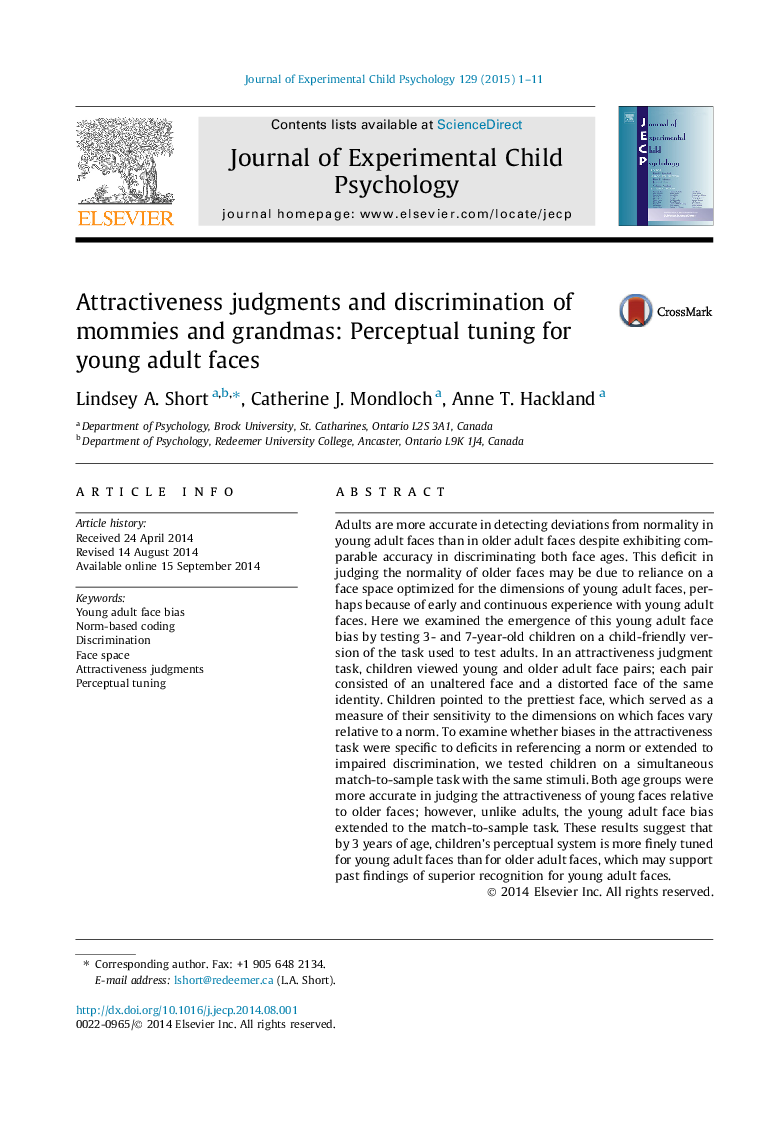| Article ID | Journal | Published Year | Pages | File Type |
|---|---|---|---|---|
| 918028 | Journal of Experimental Child Psychology | 2015 | 11 Pages |
•3- and 7-year-olds judged young and older face pairs: one normal and one distorted.•Attractiveness judgments (referencing a norm) were more accurate for young faces.•Performance on a match-to-sample task was also more accurate for young faces.•Our results have implications for how face space becomes optimized for young faces.•We discuss implications for domain-general vs. domain-specific development.
Adults are more accurate in detecting deviations from normality in young adult faces than in older adult faces despite exhibiting comparable accuracy in discriminating both face ages. This deficit in judging the normality of older faces may be due to reliance on a face space optimized for the dimensions of young adult faces, perhaps because of early and continuous experience with young adult faces. Here we examined the emergence of this young adult face bias by testing 3- and 7-year-old children on a child-friendly version of the task used to test adults. In an attractiveness judgment task, children viewed young and older adult face pairs; each pair consisted of an unaltered face and a distorted face of the same identity. Children pointed to the prettiest face, which served as a measure of their sensitivity to the dimensions on which faces vary relative to a norm. To examine whether biases in the attractiveness task were specific to deficits in referencing a norm or extended to impaired discrimination, we tested children on a simultaneous match-to-sample task with the same stimuli. Both age groups were more accurate in judging the attractiveness of young faces relative to older faces; however, unlike adults, the young adult face bias extended to the match-to-sample task. These results suggest that by 3 years of age, children’s perceptual system is more finely tuned for young adult faces than for older adult faces, which may support past findings of superior recognition for young adult faces.
